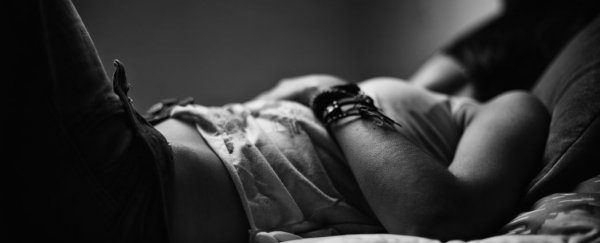If you often find yourself tired and lethargic, but don't know how you can possibly fit any more sleep into your routine, you could try adjusting the timing of it instead. A new study has found that the hour you go to bed can make as much of a difference as how many hours you actually spend hidden away under the duvet. Or at least it does in mice, and the same theory could apply to other animals (and ourselves) too.
A team from Washington State University in the US shifted a group of mice from their usual cycle of sleeping and waking: they were put on a 20-hour cycle rather than their normal 24-hour one. While the mice still got the same number of hours' sleep overall, electrical activity patterns related to restorative sleep indicated that it was of a poorer quality and left the creatures more vulnerable to illness thanks to a disrupted immune response.
Many sleep experts have previously suggested that our body's natural circadian rhythms can influence the quality of our slumber. One of the study's conclusions was that the complexities of modern life - with bright night-time lighting, the effects of jet lag, and the prevalence of small, glowing screens everywhere we look - are all contributing to put our sleep patterns out of sync.
As with most animals that live beyond a day, human beings have a built-in natural clock that controls sleeping and waking as well as digestion, heart rate, and blood pressure. It works on a 24-hour cycle, which is what the term 'circadian' means, and anything that tips this cycle out of balance (from an all-night party to an early morning flight) is going to cause problems and possibly damage to the body. In other words, find the best time of night to go to sleep for your own body - whether that's earlier or later than you've been going to bed - and then stick to it.
"If you're fighting your natural rhythm, forcing yourself to go to bed early is only going to make you anxious about not being able to fall sleep," Signe Cane reported for us last week. "As insomnia researcher Allison Siebern from Stanford University explains to Time magazine, the best time for a person to go to sleep is the hour when they feel the sleepiest."
Of course, that's easier said than done, especially for people with a young family or shift work. "[On a 20-hour cycle] the system is not responding in the optimal manner," said lead researcher Ilia Karatsoreos in a press release. "Just like you have a car that you're running into the ground - things don't work right but you keep driving it until it stops. That's what could happen if you think of disruption going on for years for somebody who's working shift work."
The study has been published in the journal Brain, Behavior and Immunity.
